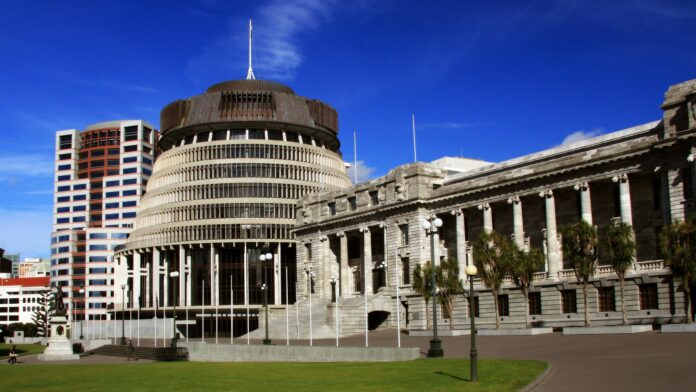For decades, Ministry of Foreign Affairs and Trade (MFAT) officials have recommended funding UNRWA. When presented with evidence of UNRWA schools teaching hate, MFAT officials also tried to justify the practice. The Chief Human Rights Commissioner has weighed in to suggest that the support for antisemitism “would place New Zealand in breach of its international human rights obligations”. The Human Rights Commission and MFAT have decided to ignore the decades of evidence and wait for a report that was due in December, 2020, before considering further action.
But there is another issue with Kiwi taxpayers funding UNRWA that is not necessarily a breach of international human rights obligations; rather a potential failure of fiduciary responsibility on behalf of MFAT officials.
MFAT has consistently downplayed the documented corruption (at the executive and operational levels) within UNRWA. New Zealand officials have only support the organisation’s procedures and policies and suggested that any examples of aid being sold instead of going to the needy, for example, are isolated incidents and not indicative of systemic issues. This is despite strong evidence that UNRWA in Gaza, particularly, is controlled by terror groups that steal aid and misuse UNRWA facilities.
However, a potentially more serious issue is that MFAT is unable to state how many legal refugees UNRWA is supporting with their work. Officials have told The Israel Institute of New Zealand that
“The Ministry does not hold a breakdown of how many people are eligible for UNRWA services by their status as refugees under international law.”MFAT
This is remarkable and, at the same time, somewhat expected. It is remarkable because providing funding to help refugees without knowing the number involved suggests a high likelihood that the expenses claimed by UNRWA are either not enough to meet the demand or too much for the number of refugees.
The inability for MFAT to give numbers is somewhat expected because this issue of the double-standard in how UNRWA defines a refugee has long been known. Unlike the definition of a refugee used for all other refugees in the world, UNRWA allows refugee status to be passed down to future generations ad infinitum and even considers people who are citizens of a country as refugees eligible for services. In fact the vast majority of “Palestinian refugees” whom UNRWA helps in Jordan are Jordanian citizens.
It is, therefore, astonishing that MFAT explicitly acknowledge this double-standard in another letter to The Israel Institute of New Zealand:
“Eligibility for UNRWA services is a separate matter to that of conferral of refugee status under international law.”MFAT
MFAT officials have not specifically answered questions about why New Zealand taxpayers should be funding health, education, and other services for Jordanian citizens that only “Palestinian refugees” can access. MFAT has only said “UNRWA’s mandate is to provide humanitarian and development assistance to registered Palestinian refugees based in Palestine and across the region… New Zealand supports UNRWA’s mandate…” and “New Zealand encourages all states to … ensure that refugees and/or protected persons have the same rights and access to employment, education, income and housing support, public health services and pathways to citizenship, as residents or citizens of that state.”
There have also been inconsistencies between the number of ‘refugees’ that UNRWA claims to serve – from 750,000 and an annual budget “not exceeding $5m” (less than $7 per person) in 1948, UNRWA now claims approximately 5m ‘registered refugees’ and has an annual budget of $1.3b ($260 per person; for comparison, UNHCR provides similar services to all other refugees in the world for approximately $85 per person). In 2017, the census in Lebanon showed almost three times fewer Palestinians than UNRWA was claiming there were. And and expert has estimated that UNRWA is has inflated the true number of Palestinian refugees by a factor of 200.
While MFAT officials appear not to be worried about wasting taxpayer funding, they also don’t seem to really care about Palestinian rights. It is a sad reality that Palestinian “refugees” in Lebanon, for example, are denied basic rights and the ability to live in dignity. By Lebanese law, Palestinian refugees are prohibited from accessing public health and education services or owning land and are barred from employment in many fields. The law considers UNRWA-registered Palestinian refugees to be foreigners, and in several instances they experience worse treatment than other foreign nationals.
The New Zealand government could help these Palestinians by acting on their rhetoric of “encouraging states to ensure refugees… have the same rights… and pathways to citizenship”. The most significant act would be to consider transferring the funds earmarked for UNRWA to the Lebanese government instead. This would send a clear signal that the double-standard definition must end and dignity must be offered to Palestinians instead.
There are many reasons to seek alternative arrangements to the ongoing status quo of a corrupt, discriminatory organisation that teaches children to hate Jews while simultaneously ensuring Palestinians, for generations to come, will be subjected to apartheid-like status in Arab countries.
At the very least, the New Zealand government should know how many legal refugees there are, instead of keeping their metaphorical heads in the sand and cheque books in the air. Taxpayers deserve more, and so do human rights activists who truly care about Palestinians.



